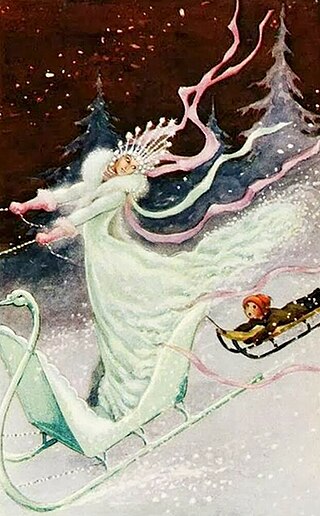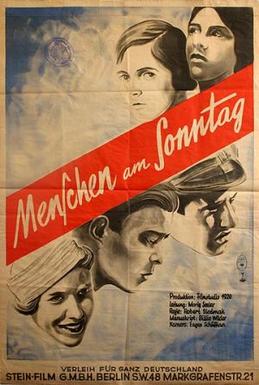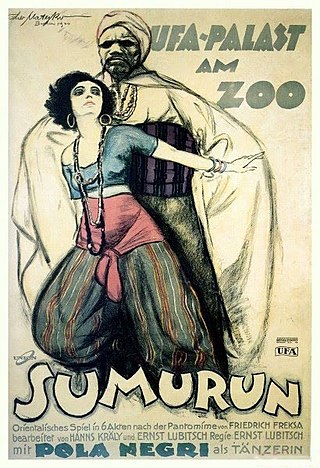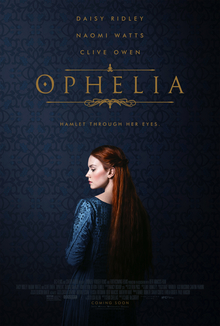Plot
Act I
The commander of an isolated border fortress receives word that a Lieutenant Alexis has been assigned there as punishment. This delights his wife and daughter. Elsewhere, vast mobs of women line the streets to bid Alexis goodbye (as does a horde of young children who call him Daddy).
Act II
On the sleigh ride to his new posting, Alexis is pelted by a snowball by a young woman. When he gets out of the sleigh, he is surrounded by armed men, part of a gang of feared robbers nominally led by Claudius, but in reality under the bidding of his daughter, Rischka. Rischka forces Alexis to take off his uniform. He nonchalantly kisses her hand anyway. When one of the men draws his dagger, Rischka intervenes and lets Alexis go unharmed, in his "underclothes".
Act III
When Alexis arrives at the fort, Lilli, the commander's daughter, likes what she sees. The commander sends Alexis with a large musical band and a smaller detachment of soldiers to punish the robbers, but despite being outnumbered, Rischka and her men have little trouble routing their attackers. When the soldiers return to the fort, their commander assumes they have been victorious and gives Alexis Lilli's hand in marriage as a reward. None of the men bother to correct him.
There is a great celebration, with fireworks, an orchestra, dancing and drinking. Rischka sneaks into the fortress with some of the robbers and proceeds to loot a bedroom. She puts on a dress she finds there, and the men don uniforms; then they all join the party. Alexis spots her and gives chase, finally trapping her in a room. They embrace, but then he decides his duty requires him to turn her in. He locks her in, but a jealous Lilli later opens the room and makes Rischka leave before Alexis returns with soldiers.
Act IV
Claudius also decides it is time for his daughter to marry. The robbers remind him that he promised one of them the honor. When Rischka demands to know who it will be, all but one slink away. Only Pepo remains. Rischka does not take him seriously, until he unexpectedly knocks her down and drags her away by her legs. Shocked at first by this atypical behavior, she eventually showers him with kisses, and they embrace in the snow. As part of the wedding ceremony, Claudius chains the couple together at the wrist. However, Rischka becomes sad when she reads of the betrothal of Alexis and Lilli. Seeing this, Pepo unchains her.
She goes to Alexi's suite. He is glad to see her, and goes to change into something more comfortable. While he is gone, Lilli arrives. Seeing her rival, she bursts into tears, causing Rischka to promise to make things right (though she does steal Lilli's necklace while comforting her). When Alexis returns, Rischka acts so boorishly that he becomes disgusted. She returns to Pepo, while Alexis greets Lilli more warmly.

To Be or Not to Be is a 1942 American comedy film directed by Ernst Lubitsch, starring Carole Lombard and Jack Benny, and featuring Robert Stack, Felix Bressart, Lionel Atwill, Stanley Ridges and Sig Ruman. The plot concerns a troupe of actors in Nazi-occupied Warsaw who use their abilities at disguise and acting to fool the occupying troops. It was adapted by Lubitsch (uncredited) and Edwin Justus Mayer from the story by Melchior Lengyel. The film was released one month after actress Carole Lombard was killed in an airplane crash. In 1996, it was selected for preservation in the United States National Film Registry by the Library of Congress as being "culturally, historically, or aesthetically significant."

"The Snow Queen" is a 1844 original fairy tale by Danish author Hans Christian Andersen. It was first published 21 December 1844 in New Fairy Tales. First Volume. Second Collection. The story centers on the struggle between good and evil as experienced by Gerda and her friend, Kai. Unlike Andersen's other stories, The Snow Queen is written in a novel-styled narrative, being divided into seven chapters.

Hans Walter Conrad Veidt was a German-British actor. He attracted early attention for his roles in the films Different from the Others (1919), The Cabinet of Dr. Caligari (1920), and The Man Who Laughs (1928). After a successful career in German silent films, where he was one of the best-paid stars of UFA, Veidt and his new Jewish wife Ilona Prager left Germany in 1933 after the Nazis came to power. The couple settled in Britain, where he took citizenship in 1939. He appeared in many British films, including The Thief of Bagdad (1940), before emigrating to the United States around 1941, which led to his being cast in what may be his best remembered role as Major Strasser in Casablanca (1942). This was Veidt's last film role to be released during his lifetime.

The Last Command is a 1928 silent romantic drama film directed by Josef von Sternberg, and written by John F. Goodrich and Herman J. Mankiewicz from a story by Lajos Bíró. The film stars Emil Jannings, who won the first Academy Award for Best Actor in a Leading Role at the 1929 ceremony for his performances in this film and The Way of All Flesh, the only year multiple roles were considered. Evelyn Brent and William Powell co-star.

Hamlet, or Hamlet: The Drama of Vengeance, is a 1921 German film adaptation of the William Shakespeare play Hamlet starring and produced by Danish silent film actress Asta Nielsen. It was directed by Svend Gade and Heinz Schall. The film was shot at the Johannisthal Studios in Berlin.

Salome is a 1953 American drama Biblical film directed by William Dieterle and produced by Buddy Adler from a screenplay by Harry Kleiner and Jesse Lasky Jr. The music score was by George Duning, the dance music by Daniele Amfitheatrof and the cinematography by Charles Lang. Rita Hayworth's costumes were designed by Jean Louis. Hayworth's dances for this film were choreographed by Valerie Bettis. This film was the last produced by Hayworth's production company, the Beckworth Corporation.

People on Sunday is a 1930 German silent drama film directed by Robert Siodmak and Edgar G. Ulmer from a screenplay by Robert and Curt Siodmak. The film follows a group of residents of Berlin on a summer's day during the interwar period. Hailed as a work of genius, it is a pivotal film in the development of German cinema and Hollywood. The film features the talents of Eugen Schüfftan (cinematography), Billy Wilder (story) and Fred Zinnemann.

The Saga of Gösta Berling is a 1924 Swedish romantic drama film directed by Mauritz Stiller and released by AB Svensk FAB Svensk Filmindustri, starring Lars Hanson, Gerda Lundequist and Greta Garbo in her domestic film breakthrough. It is based on Swedish Nobel Prize-winning author Selma Lagerlöf's 1891 debut novel Gösta Berlings saga. The film is also known as Gösta Berling's Saga, The Story of Gösta Berling and The Atonement of Gösta Berling.

Bluebeard's Eighth Wife is a 1938 Paramount Pictures American romantic comedy film directed and produced by Ernst Lubitsch and starring Claudette Colbert and Gary Cooper. The film is based on the 1921 French play La huitième femme de Barbe-Bleue by Alfred Savoir and the English translation of the play by Charlton Andrews. The screenplay was the first of many collaborations between Charles Brackett and Billy Wilder. The film is a remake of the 1923 silent version directed by Sam Wood and starring Gloria Swanson.

The Oyster Princess is a 1919 German silent comedy film directed by Ernst Lubitsch and starring Victor Janson, Ossi Oswalda and Harry Liedtke. It is a grotesque comedy in four acts about an American millionaire's spoiled daughter's marriage that does not go as planned. It was shot at the Tempelhof Studios in Berlin. The film's sets were designed by the art director Kurt Richter, a frequent collaborator of Lubitsch.
I Don't Want to Be a Man is a 1918 German film directed by Ernst Lubitsch.

The Doll is a 1919 German romantic fantasy comedy film directed by Ernst Lubitsch. The film is based on the operetta La poupée by Edmond Audran (1896) and a line of influence back through the Léo Delibes ballet Coppélia (1870) and ultimately to E. T. A. Hoffmann's short story "Der Sandmann" (1816).

Rosita is a 1923 silent American historical comedy drama film directed by Ernst Lubitsch and starring Mary Pickford. The film is based upon an 1872 opera Don César de Bazan by Adolphe d'Ennery and Philippe Dumanoir.

Sumurun is a 1920 German silent film directed by Ernst Lubitsch based on a pantomime by Friedrich Freksa.

The Loves of Pharaoh is a 1922 German historical epic film directed by Ernst Lubitsch. It starred Emil Jannings.

Die Augen der Mumie Ma is a 1918 German silent film directed by Ernst Lubitsch. The film stars Pola Negri as Ma, Emil Jannings as Radu, and Harry Liedtke as Wendland. It was the first collaboration between Lubitsch and Negri, a pairing that would go on to make worldwide successes such as Carmen (1918), Madame DuBarry (1919), and Sumurun (1920).

Carmen is a 1918 German silent drama film directed by Ernst Lubitsch and starring Pola Negri, Harry Liedtke, and Leopold von Ledebur. It was based on the novella Carmen by Prosper Mérimée. Like Bizet's opera Carmen, this film only adapts the third part of Mérimée's novella and transforms the character of Don José at the beginning of the story from bandit on the run to honest man in love with his childhood sweetheart. The film was released with English intertitles in the United States in 1921 under the alternative title Gypsy Blood.

Erich Schönfelder (1885–1933) was a German screenwriter, actor, and film director of the silent and early sound eras. Early in his career he worked frequently with Ernst Lubitsch.

Ophelia is a 2018 historical romantic drama film directed by Claire McCarthy and written by Semi Chellas about the character of the same name from William Shakespeare's play Hamlet. Based on the novel by Lisa Klein, the film follows the story of Hamlet from Ophelia's perspective. It stars Daisy Ridley in the title role, alongside Naomi Watts, Clive Owen, George MacKay, Tom Felton and Devon Terrell. The dialogue is in modern English.

Klaus is a fictional superhero created by writer Grant Morrison and artist Dan Mora. Debuting originally in a seven-issue comic book mini-series published in 2015 and 2016 by Boom! Studios, the character has gone on to star in a number of other stories since. The original miniseries is styled as a sprawling superhero origin story, akin to Batman: Year One, re-imagining Santa Claus as a wild shaman of the winter in the 16th century. Drawing on folklore, westerns, and epic fantasy, Morrison and Mora intended to craft a brand-new sexy Santa for the modern age. The origin chronicles Klaus, a wild man of the winter and the forests on his mission with his pet white wolf Lilli, to restore joy to the sacred holiday of Yuletide. Set in the totalitarian town of Grimsvig, wherein joy is forbidden and Yuletide is outlawed, the series casts Santa Claus as a V for Vendetta and Robin Hood-esque figure, fighting its fascistic Lord Magnus, and the greater demonic force behind him.



















